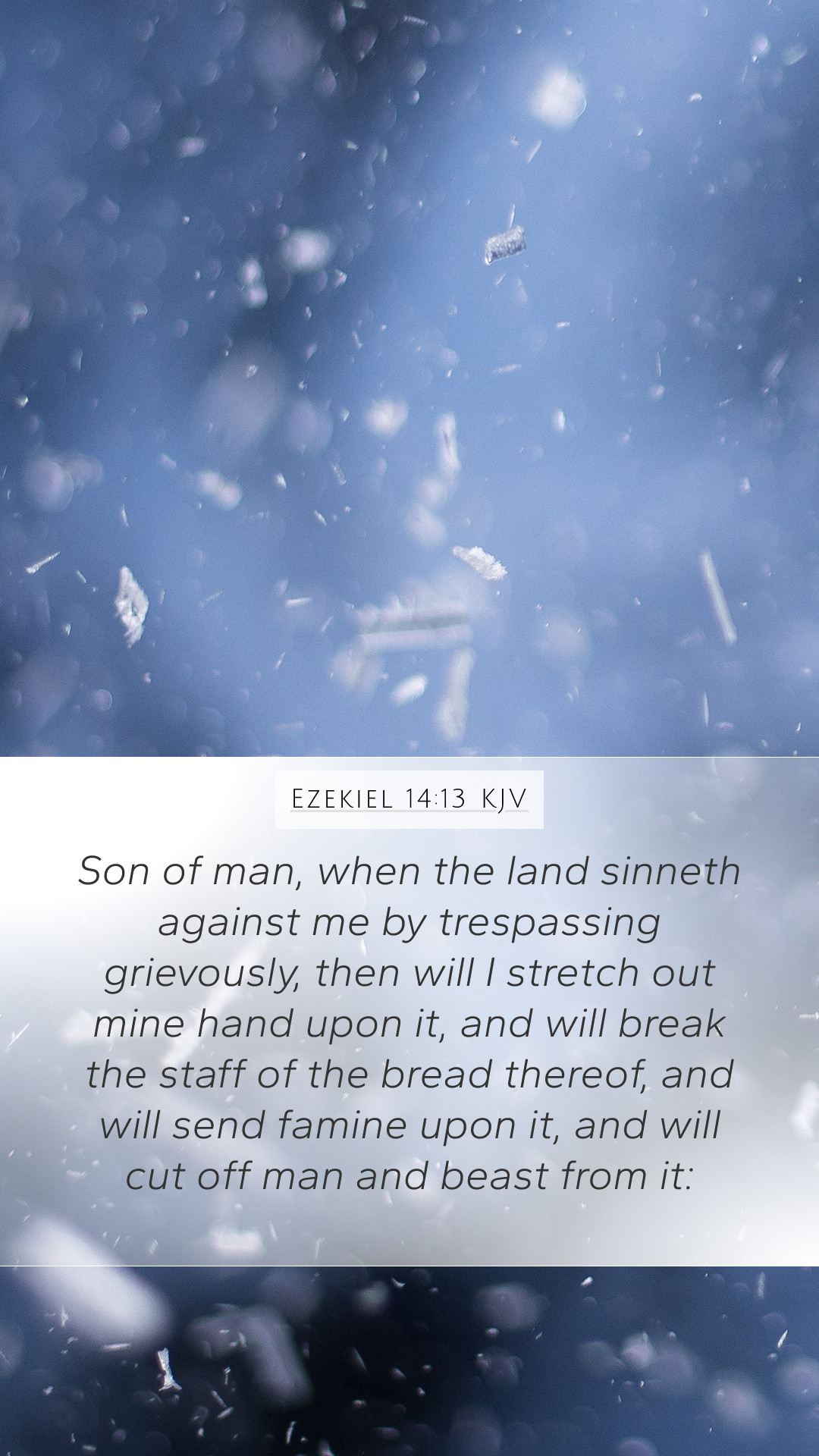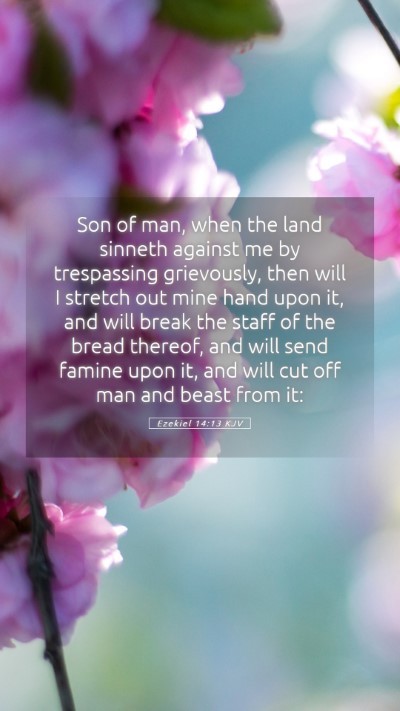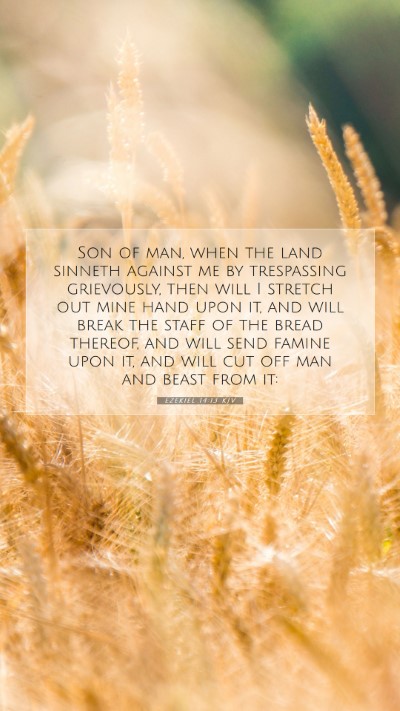Understanding Ezekiel 14:13
Ezekiel 14:13 states: "Son of man, when the land sins against me by trespassing grievously, then will I stretch out my hand upon it, and will break the staff of the bread thereof, and will send famine upon it, and will cut off man and beast from it." This verse conveys profound implications regarding sin, divine judgment, and God's response to the unfaithfulness of His people.
Bible Verse Meaning
In this scripture, the prophet Ezekiel addresses the dire consequences that follow when a land, symbolizing the people of Israel, commits grievous sins against God. The term "land" often represents the nation and its inhabitants in biblical texts. This verse highlights God's righteous nature, emphasizing that persistent sin provokes divine action.
God's Judgment on Sin
As noted in Matthew Henry's Commentary, Ezekiel’s words depict God’s willingness to enact judgment when His people stray from His commandments. The phrase “stretch out my hand” symbolizes divine intervention, showcasing both protection and punishment. God’s hand can serve as a means of blessing, yet it can also represent judgment against sin.
The Significance of Famine
Albert Barnes highlights the severe implication of "breaking the staff of bread," indicating a direct link between sin and sustenance. When a nation turns away from God, it risks not only spiritual deprivation but also physical hardship, exemplified by famine. This suffering serves as a call to repentance and acknowledgment of God’s sovereignty.
Divine Sovereignty and Human Responsibility
Adam Clarke emphasizes the balance between divine sovereignty and human action. The text suggests that while God is powerful and just, individuals must acknowledge their part in the societal sin that leads to suffering. The consequences of such sin remind believers of their responsibility in maintaining faithfulness to God.
Applications in Bible Study
Understanding this verse provides insight into key themes present throughout Scripture:
- Repentance: The call to turn back to God and seek forgiveness for collective and personal sins.
- Divine Judgment: Recognizing that God will respond to nations and individuals based on their fidelity to His teachings.
- Provision: The idea that God as a provider can withdraw His provision in a time of judgment highlights our need for dependence on Him.
Cross References
This verse can be linked with several other passages that reinforce its themes:
- 2 Chronicles 7:14: A call for humility and prayer in the face of national sin.
- Isaiah 1:19-20: The consequences of disobedience contrasted with the blessings of obedience.
- Jeremiah 14:12: God's judgment through famine and the plea for mercy.
Conclusion
Ezekiel 14:13 serves as a sobering reminder of the serious nature of sin and the corresponding divine judgment that follows. By studying this verse alongside the insights offered by public domain commentaries, believers can gain a deeper understanding of God's justice and the importance of remaining faithful. As part of Bible study lessons, this verse encourages reflection on personal and collective actions in relation to God's commandments.


